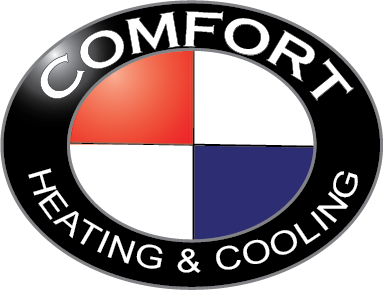All About Indoor Air Quality
 When we think about environmental pollutants, water pollution or outside air pollution might first come to mind. However, the quality of the air we breath inside our homes – where we spend the majority of our time – also plays an important role in our overall health and well-being.
When we think about environmental pollutants, water pollution or outside air pollution might first come to mind. However, the quality of the air we breath inside our homes – where we spend the majority of our time – also plays an important role in our overall health and well-being.
What is Indoor Air Quality (IAQ)?
Simply put, Indoor Air Quality (IAQ) refers to the air inside buildings and how it relates to the occupants’ health and comfort. Breathing healthy indoor air is imperative, given the amount of time we spend inside.
What kind of pollutants are commonly found inside buildings?
Anything that releases gases or particles into the air is of concern. There are many potential sources of pollutants but here are a few to be aware of.
Volatile organic chemicals (VOCs): There are numerous household sources of VOCs, including cleaners, paints, aerosols, air fresheners, hobby supplies, and more. When using these items, make sure to use proper protections and ventilation. If materials must be stored, ensure you follow the manufacturer instructions and keep out of reach of children. Safely dispose of unused products when your city or county is doing a hazardous waste collection event.
Formaldehyde, one of the best known VOCs, is generally present throughout homes. It can be found in everything from paint to fabric to furniture. To reduce expose, let new items off-gas outside of your living space for a few days.
Radon: Radon is a naturally occurring radioactive element that causes lung cancer. While generally not a problem outdoors, it can get trapped indoors when it enters through holes in the foundation of homes, schools, and offices. It is easy to test for, however. Find more information from the EPA.
Asbestos: Now banned in most cases, asbestos was used in building materials so it may be present in older construction. If your home is damaged in some way or you’re considering remodeling, you’ll want asbestos testing to ensure you’re handling and disposing of materials properly. Asbestos isn’t considered harmful when it’s undisturbed and intact. When the fibers are released into the air, though, through remodeling or wear-and-tear, prolonged expose can cause lung cancer or mesothelioma.
Mold: This one is serious in the Pacific Northwest. Unchecked moisture inside your home can be a breeding ground for mold. Mold triggers asthma, allergies, and respiratory issues. If there is a leak, fix the source and thoroughly dry out the area. Reduce humidity by using a dehumidifier, proper venting, and preventing condensation by adding insulation.
Secondhand and thirdhand smoke: Smoke-free living and working areas are imperative for good health. Most of us know that breathing in others’ cigarette smoke (secondhand smoke) is harmful and cancer-causing. But even thirdhand smoke, or the smoke particles that land on clothing and other surfaces, are a concern. Scientists believe these particles can alter DNA and lead to many different types of cancer.
How do I know if my home has poor IAQ?
How do you feel? Most of the time, your body will tell you if you need to address air quality issues. You or your children will experience eye, nose, and throat irritations or frequent headaches or fatigue. You may think your allergies are acting up or that you have frequent colds.
How can I improve the IAQ in my home?
- Test for radon.
- Don’t smoke in your home or your car.
- Install carbon monoxide detectors.
- Use and maintain a ventilation system.
- Control moisture through use of dehumidifiers, fans, and venting.
- Keep it clean! Regular dusting and vacuuming go a long way in capturing irritants that collect throughout the home.
Consider an electronic air cleaner
It’s ironic that the more energy efficient homes become, the more of an issue IAQ becomes. While old, drafty houses aren’t good for energy efficiency, the fresh air is good for health. In today’s modern houses, it’s important that a ventilation is maintained to allow for healthy air exchange. When air passes through your HVAC system, air filters will trap dust, dander, and even smaller particles like mold. Once trapped, they won’t be able to keep circulating through your home.
If you have questions about your home’s IAQ or want more information about Comfort Heating & Cooling’s electronic air cleaners, contact us!
Tags: electronic air cleaner, home comfort, indoor air quality
